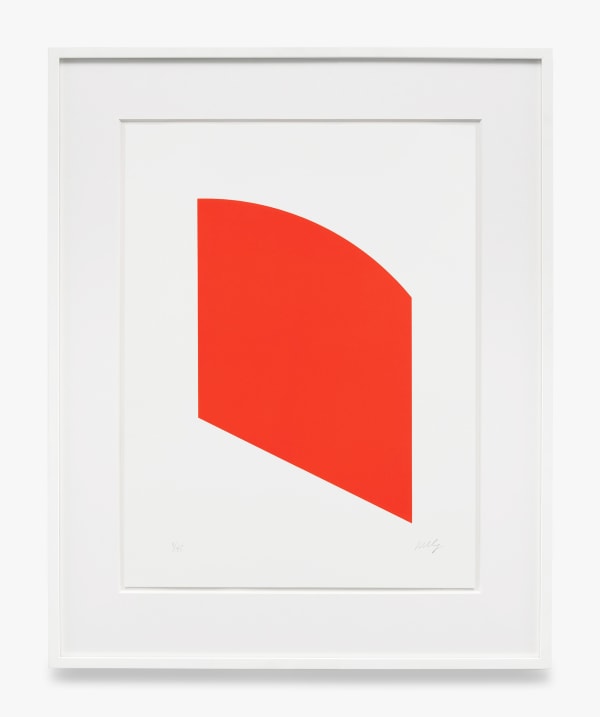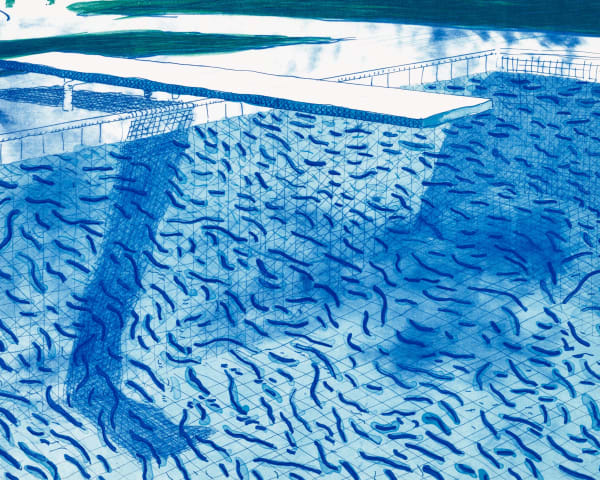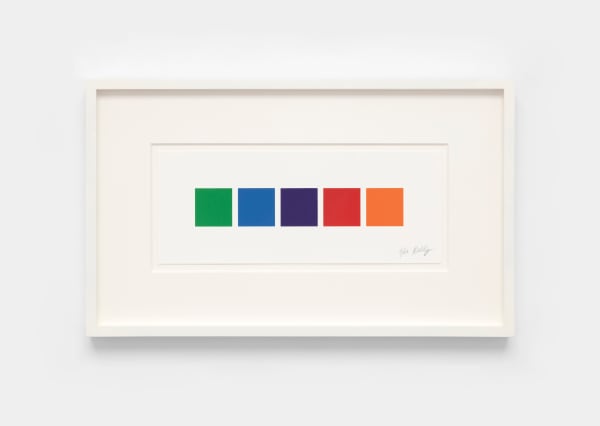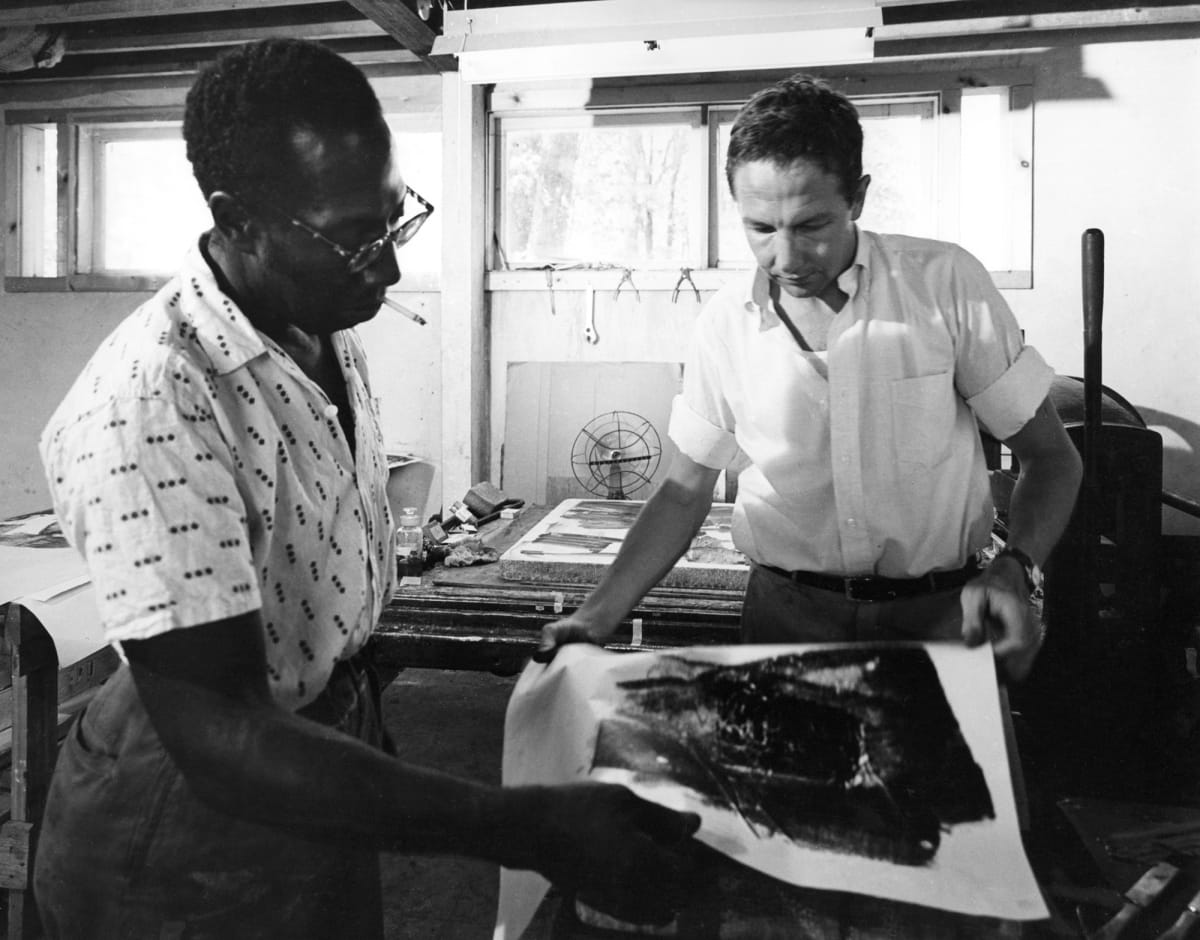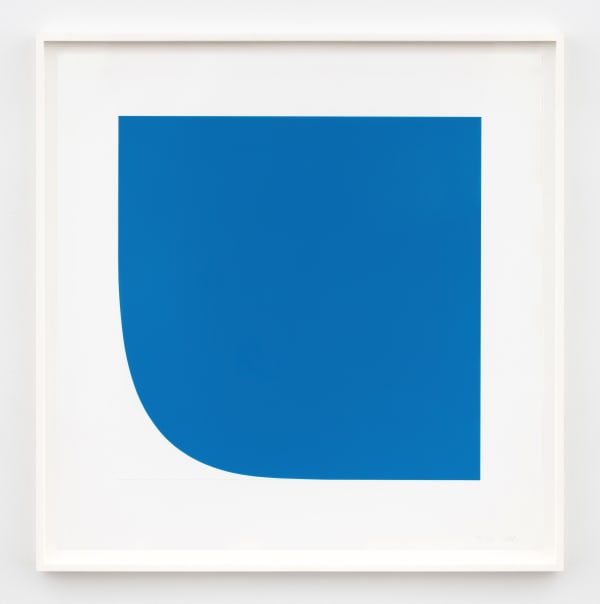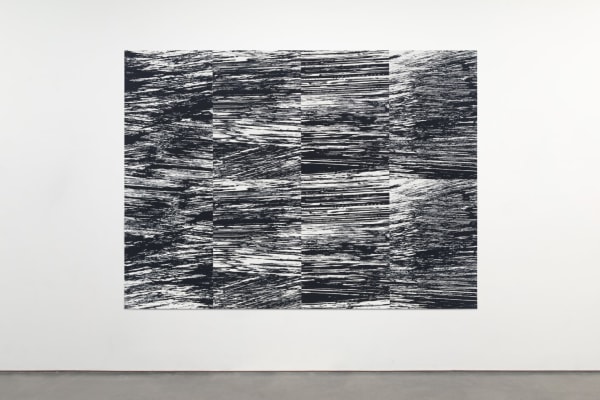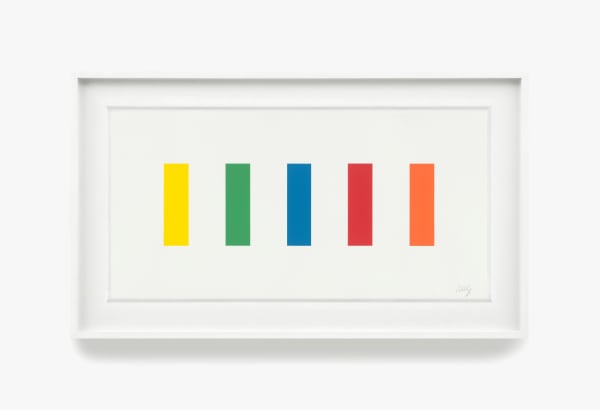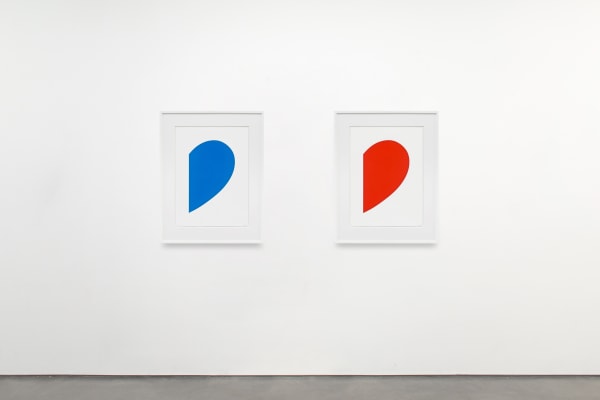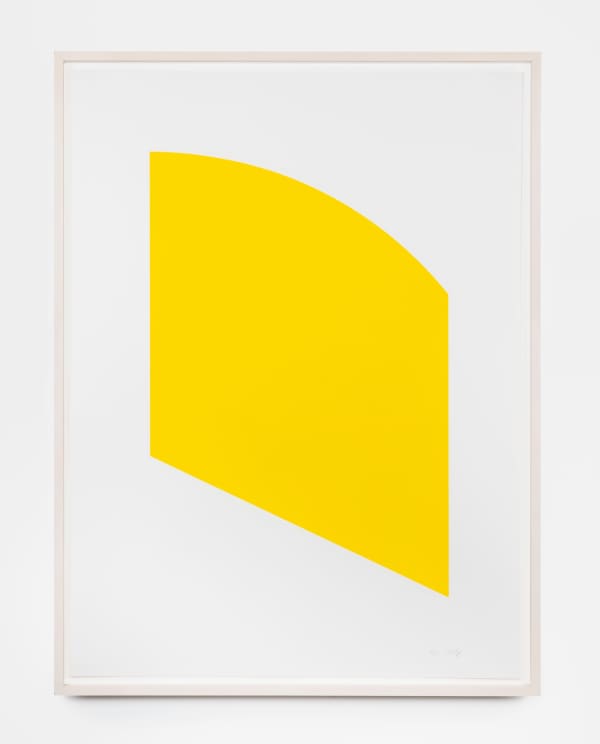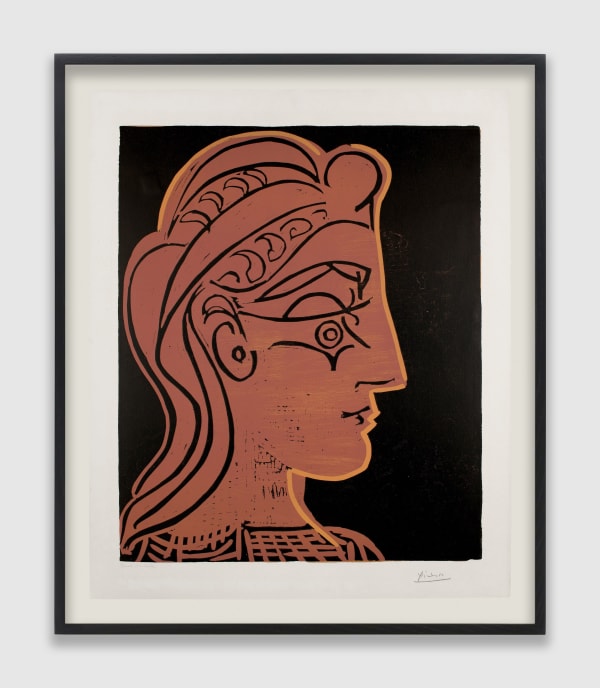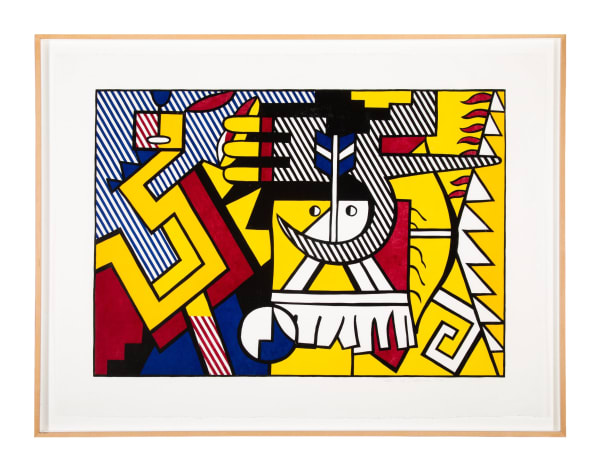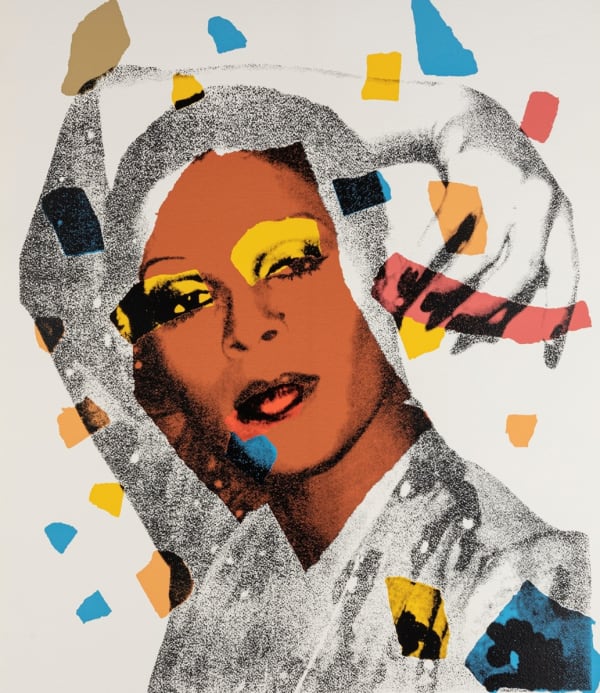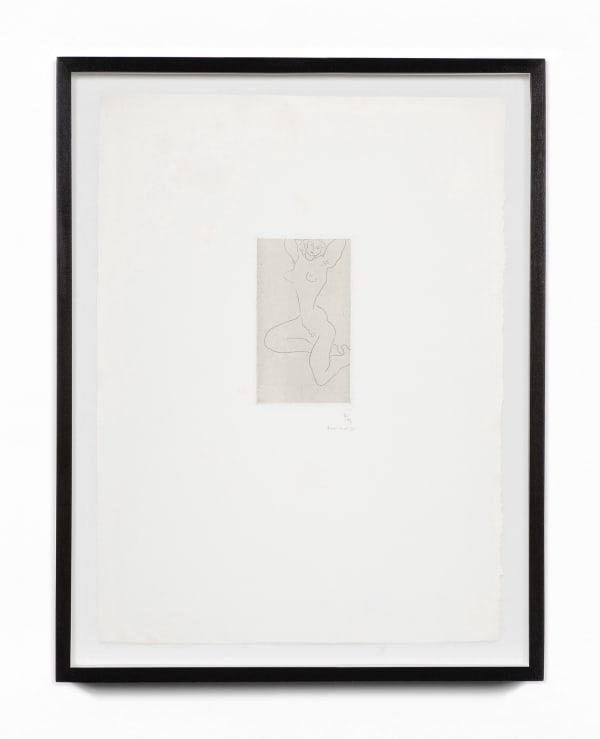“All my work comes from perceiving. I kept seeing things that were brooding in me. I'm not a geometric artist.”
Ellsworth Kelly (Newburgh, New York, 1923 - Spencertown, New York, 2015) was an American painter, sculptor, and printmaker best known for his pared-down geometric abstractions. Kelly studied technical drawing at the Pratt Institute in Brooklyn before being drafted into the army as a camouflage artist. After the war, he studied at the School of Museum Fine Arts in Boston and then the Ecole des Beaux-Arts in Paris on the G.I. Bill. While in Paris, he studied Byzantine icons and Romanesque architecture and met many artists, including Jean Arp, Constantin Brancusi, and Alexander Calder, all of whom had an influence on him. It was at this time that he shifted his style from representation to abstraction. Kelly returned to New York in 1954 and began to create abstract works in a different vein from abstract expressionism, the dominant style at the time. Rather, Kelly rejected gestural expression and painterliness for spare, geometric works featuring bright color. He was also one of the first artists to experiment with shaped canvases. Kelly's intention for his work was for viewers to have a meditative, bodily encounter.
-

Summer Breeze
30 Jul - 22 Sep 2024This online viewing room features an exceptional selection of works by Henri Matisse, Ellsworth Kelly, David Hockney, Josef Albers, Sam Gilliam, and Alex Katz. From Matisse's lush trees of the...Read more -

Lilt, Joy and Clarity
The Prints of Ellsworth Kelly 14 Oct 2021 - 4 Feb 2022Zeit Contemporary Art is pleased to present Lilt, Joy and Clarity: The Prints of Ellsworth Kelly , a project organized in close collaboration with Gemini G.E.L., featuring a selection of...Read more -

From Paris to New York
Transformations in Printmaking 30 Jul - 24 Sep 2021This online viewing room begins with the growth of printmaking in early 20th century Paris, covers the war and interwar years in Europe, and goes up to and beyond the...Read more
-

Jill Bokor On Art, Design Fairgoers and What Not to Miss at Salon
Dan Duray, Observer, November 10, 2023 -

Liebe Zur Linie. Salon du Dessin & Drawing Now Art Fair
Christiane Meixner, Weltkunst, March 14, 2023 -

The Prints of Ellsworth Kelly In Focus at Zeit Contemporary Art
Eli Anapur, Widewalls Magazine, October 27, 2021 -

ELLSWORTH KELLY EN ZEIT CONTEMPORARY ART
Ana Robledano, Ars Magazine, October 27, 2021 -

Photo Story: The Prints of Ellsworth Kelly
Arte Fuse, October 26, 2021 -

Zeit Contemporary Art Showcases The History of Modern Prints
Annabel Keenan, Cultbytes, September 18, 2021 -

From Paris to New York: Transformations in Printmaking
Meer, September 4, 2021 -

Transformations in Printmaking Surveyed at Zeit Contemporary Art
Eli Anapur, Widewalls Magazine, August 13, 2021 -

From Paris to New York
Art Plugged, July 30, 2021 -

From Henri Matisse to Carmen Herrera, Transformations in Printmaking at Zeit Contemporary Art
Artfixdaily, July 30, 2021


